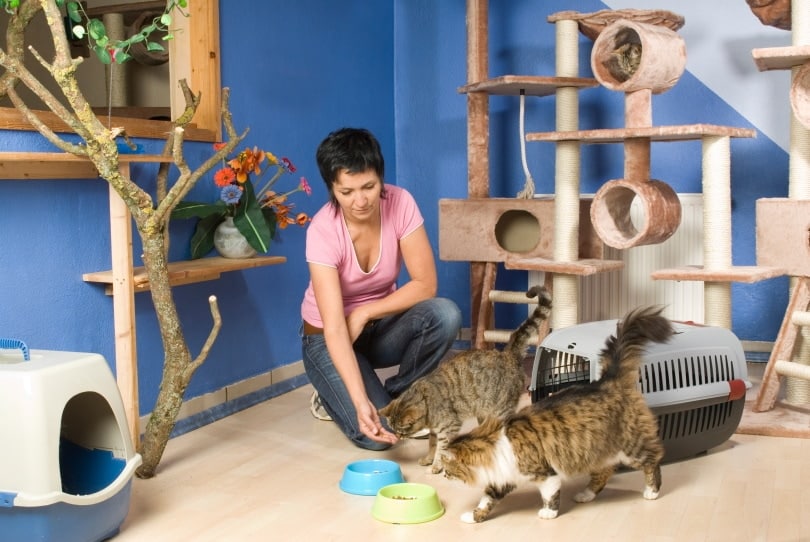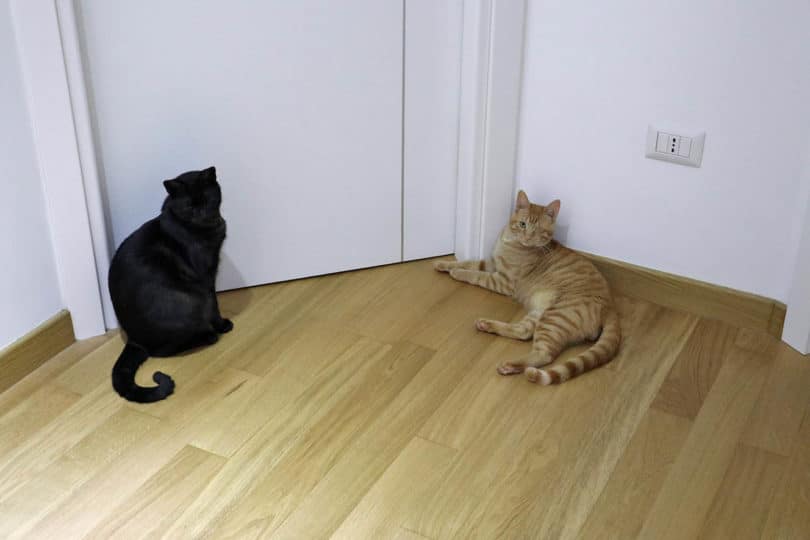As a cat parent, you are tempted to adopt every stray cat you see. Sadly, of course, you know that it’s just not possible, as there are way too many strays in the world.
Also, laws may restrict how many animals you can keep in your home or on your property. So, how many cats can you own in New Jersey?
There’s no state-wide law on how many cats you can legally own, but there might be local ordinances in place, so it’s best to talk to the local government in the city or town where you live.
Here, we highlight a few local ordinances in New Jersey regarding owning cats and delve into the question of whether there should be limits on the number of cats that someone can own.

Newark, New Jersey
If you’re moving to Newark, New Jersey, you’re not limited to a certain number of cats, but every cat over 6 months old must be licensed. A license for each neutered or spayed cat will run you around $15, while cats that aren’t spayed or neutered will cost around $20 per cat. Each cat must be licensed and have their tag on their collar if allowed outside.

Camden, New Jersey
If you choose to live in the city of Camden or anywhere in Camden County, you’ll find that it has a three-cat limit per household. All three cats must be licensed, and the fees are the same as the fees in Newark.
If you have more than three cats as pets, it’s best to settle in a city or county in New Jersey that has no cat limit.
Norwood, New Jersey
If you choose to live in Norwood, New Jersey, you can have six pets per household. You can have six cats, six dogs, or a mixture of both, but you can’t have over six in one house. All of your pets must be licensed in Norwood, no matter what you have.
Trenton, New Jersey
Trenton is New Jersey’s state capital, and it doesn’t have a limit on the number of pets you can have in one house. But of course, as with any of these cities, counties, and boroughs, you are subject to what a landlord decides and HOA rules, so it may be different according to where you live.
In Trenton, the number of cats you can own is based on whether they are a nuisance or not. For example, any cats you own can’t be an inconvenience to your neighbors with their presence, sounds, or odors. It’s also important that your cats not be a danger to humans or other animals in the neighborhood.
Of course, you already know that you need enough space for the cats to live comfortably in your home. However, if your cats are reported by the neighbors as nuisances or threats, you’ll have a problem. Trenton is the only city on this list where there is no limit to the number of cats you can own.

Hawthorne, New Jersey
If you choose to move to Hawthorne, New Jersey, you’ll be allowed to own up to five cats, as long as they are over 6 months old. If you’re caught going against these rules, you can possibly be fined up to $100 every time you’re reported.
What About Leases in New Jersey?
These towns, cities, boroughs, and counties have these laws in place for homeowners, but what about if you’re renting? How many cats can you own then?
You have to find a landlord who accepts cats or any pet to begin with. Once you do, most leases state that you can have two cats per house or unit.
Even if you own your home, you could be subject to HOA rules and regulations for keeping cats, so check ahead of time.

Should There Be Limits on Cat Ownership?
Now that you know some of the limits of cat ownership in New Jersey, you might be wondering if there should be limits on cat ownership at all. Let’s talk about the pros and cons of limiting the number of cats that can live in one household.
Advantages of Limiting Cat Ownership
The biggest advantage of limiting cat ownership is that it prevents animal hoarding. People who hoard animals eventually get to the point where they can’t feed the animals or take care of their basic needs, which is terrible for the animals and the people too.
Limiting cat ownership also cuts down on damage done to properties and the cats being nuisances to other people in the neighborhood.
Disadvantages of Limiting Cat Ownership
The biggest disadvantage is that the cats that can’t be owned either end up as strays or go into shelters, which increases the number of cats that are euthanized every year. No animal should be put to sleep just because their owner had too many cats. Allowing people to adopt more cats would save many feline lives.
It’s also hard to enforce the limited ownership law for many police departments, which already have enough to deal with. For many counties, the fact that the cats are well-fed, happy, and healthy is enough for them to just leave matters alone.
Final Thoughts
There is no state mandate in New Jersey on how many cats residents can own, but there are local ordinances that you need to follow. If you’re moving to the Garden State and have cats, it’s best to check with the local government to see how many you can safely own without breaking the law.
See Also:
Featured Image Credit by: skeeze, Pixabay











